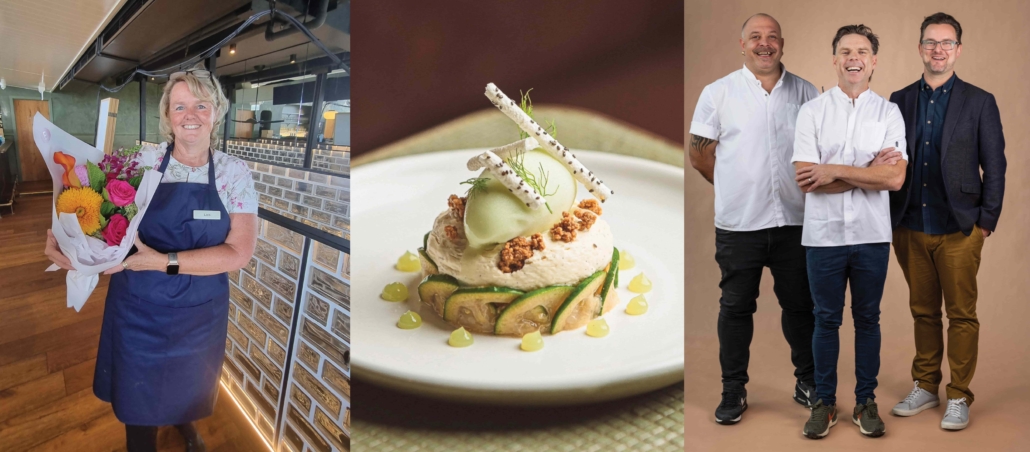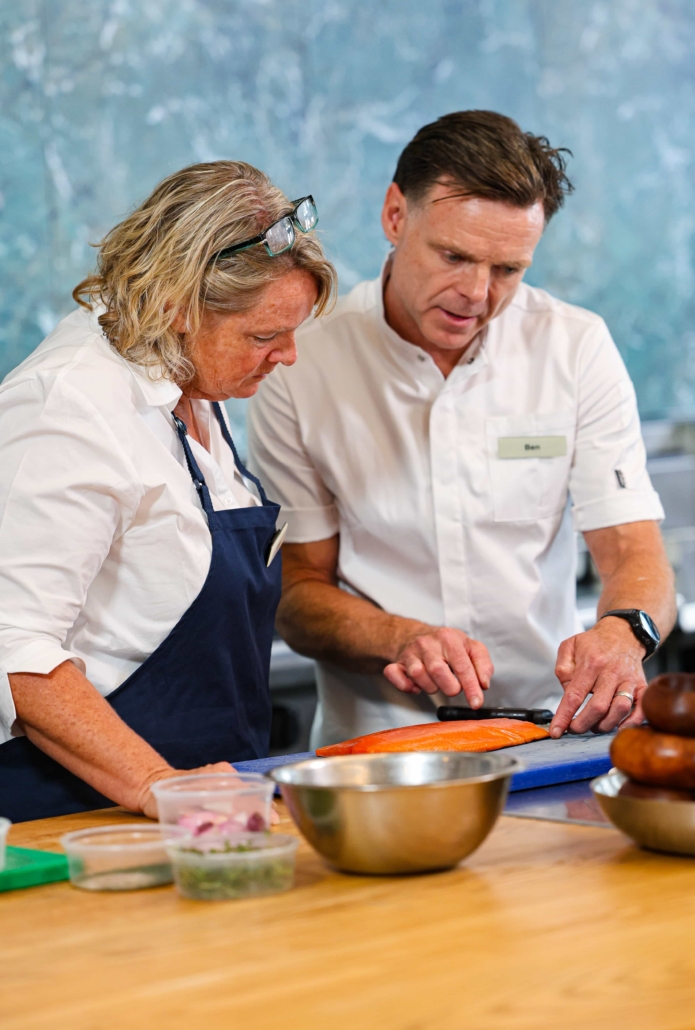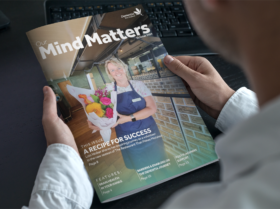A Recipe for Success
By Nicola Williams
The most heartwarming, captivating show on television is back with a new cast of ten brave and capable people who are living with Young Onset dementia – where symptoms are present before the age of 65.
Waikato resident Lois Wolkers is one of participants helping challenge public stereotypes and their own expectations of what they can achieve by working alongside renowned chef Ben Bayly in The Restaurant That Makes Mistakes.
The restaurant environment is a pressure cooker, providing many obstacles for someone with dementia. They need to learn how to prepare and serve meals, even though learning new things and retaining information is one of the most pronounced challenges the disease serves up.
They need to multi-task, recall orders, and work for several hours when they tire easily. They need to focus in a sensory-overload situations and face greater difficulty in emotionally regulating when things get overwhelming. Taking on the job takes a great inner strength, but doing so while cameras are rolling takes this bravery to the next level.
Over a four-week filming period at Origine Restaurant in the heart of Auckland’s fine dining district, participants were able to defy expectations of what someone with dementia is capable of. Behind the scenes crew were dedicated to encouraging and guiding them with the use of visual cues, repetition and prompting, with an ethos that it is okay to make mistakes. They utilised the concept of enablement, which focuses on what the participant can do, not what they can’t.
Lois, 52, says the immensely enjoyable experience was also a great confidence booster, and she was able to draw upon her long-held love of hosting friends for dinner.
“It was valuable to meet the other participants, who included a former lawyer, a scientist, an engineer and a journalist. We all had something in common, we felt connected,” she says.
Part of her motivation for participating was to help others who may see themselves reflected on the show, and to raise awareness that younger people are affected by the disease too.
“Each of us was on a different journey and had a story to tell. There were moments of joy but also moments of raw emotion and lots of tears. Some of the interviews and questions were very confronting and left me exhausted at the end of it.”
One of the show’s strengths is giving the viewer an insight into participants’ life, helping people to see the person behind the disease.
Lois recounts a stressful time leading up to her diagnosis. She moved to New Zealand with her teenage son Ethan while her husband Frank was finishing a work contract in Saudi Arabia.
“I was apart from Frank and had to find suitable schooling for Ethan and make a new life in New Zealand. In 2020 my mother died, and Ethan and I went to South Africa for her funeral. We returned to New Zealand just in time for the Covid lockdowns.”
It was a challenge to find work, schooling and to buy a house on her own. When she started having concentration and memory issues, her GP put it down to perimenopause and she was treated with hormones. It was only after her memory issues caused her to lose her much-loved job at a doggie daycare that her GP referred her for an MRI scan.
“The day that I received the results of my brain scan I was devastated. It was hard news to hear. I was emotional for some time.
“I came to acceptance within a few weeks and started telling everyone. I cried a lot but found an inner strength that allowed me to accept things. I do get very frustrated when I lose my words and cannot finish a sentence. It has been difficult to accept when I need help because I have always been a very fit, busy, active and independent woman.”
Frank says the experience was positive and affirming for Lois, whose new-found capabilities gave her a stronger sense of purpose.
“She loved connecting with the others; she started caring a lot about them which made her forget about the stress that she was going through.”
Although it was draining “due to pure output of good energy” she loved every moment.
“She had great admiration for all who took part, she constantly talked about their achievements at the restaurant. I felt proud of how she took it all on, it reminded me so much of the women I married – so driven and confident.”
Frank says there is still low public awareness about Young Onset dementia, but the show will be a step toward remedying that.
“This should let people understand those affected are still capable, they still have value to add to life and all have wonderful personalities.”
Lois is now working as a swim instructor, lending her hand to fundraising efforts to support others with Young Onset dementia, and lavishing time with her grandson, all with a new outlook on living well with dementia.
The Restaurant that Makes Mistakes screens on Mondays at 7:30pm on TV 1 and TVNZ +
You can make a difference
No family should have to go through their dementia journey alone. Your generous gift today can help us provide life-changing resources, education, and local community support services – to give help and hope to people living with dementia.
With your gift, we can be there to support families like Lois’s along their dementia journey. You’re gift is not just helping people with dementia | mate wareware, you’re making a difference for dementia communities across Aotearoa.




